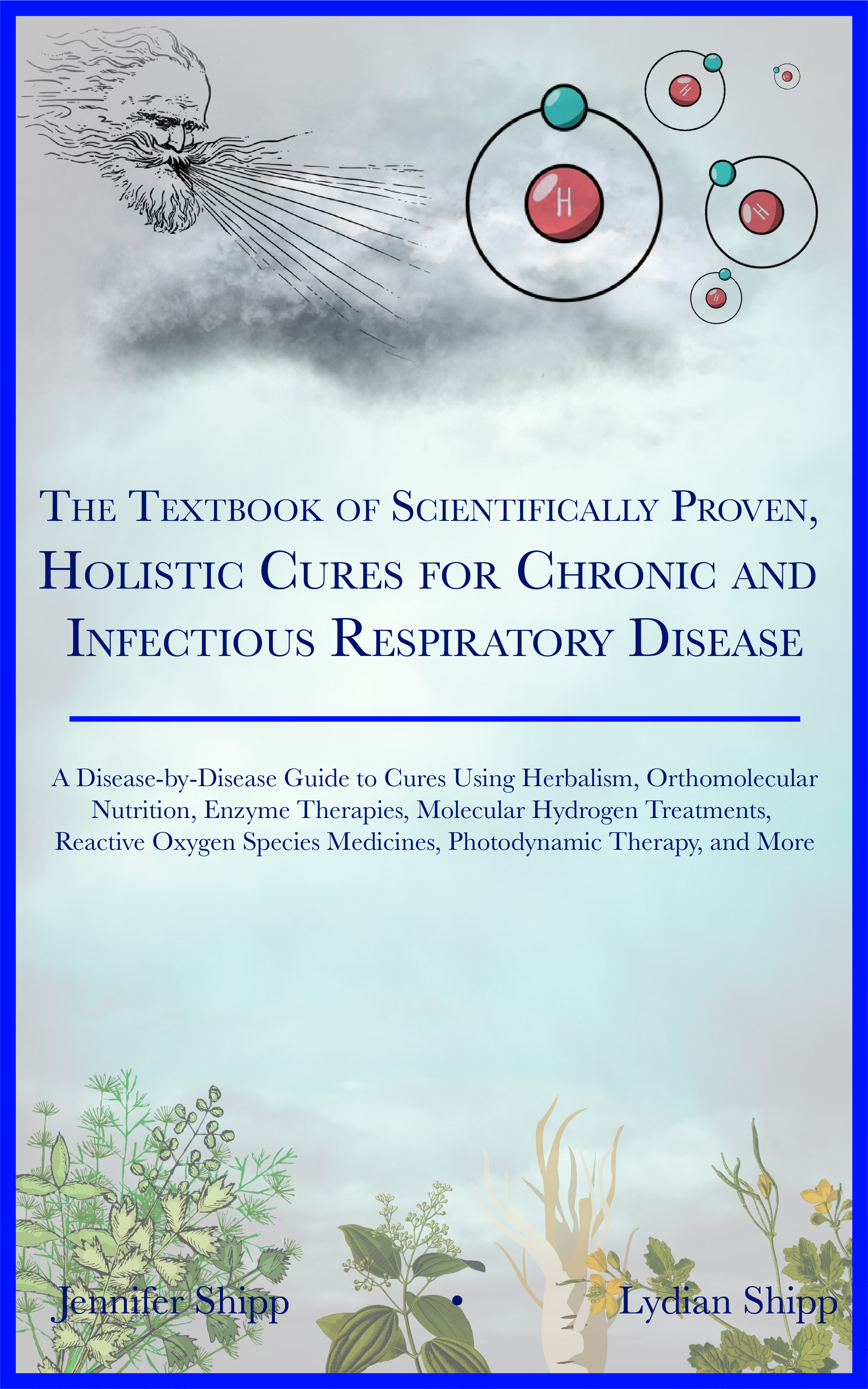Interactions Between the Digestive, Lymphatic, and Respiratory Systems
Though not many people are aware of it, there’s an intimate connection between the well-being of the gastrointestinal system and the well-being of the lungs. When the microbiome of the gut is troubled, this can cause problems with the lungs and respiratory system, or it can sometimes even exasperate respiratory tract infections like COVID-19, the common cold, whooping cough, or others. Understanding the dynamic between gastrointestinal health and lung health is essential for overcoming any respiratory system problem.What is the lymphatic system and why does it matter?
Most people don’t spend a lot of time thinking about their lymphatic system, and because this article involves a discussion of this system, I think it’s important to at least briefly discuss it before moving on to the next part. In addition, it’s one of the most important systems for healing and recovery, so it’s worth extra thought.The lymphatic system is part of the immune system and closely correlates with the circulatory system. It includes:
- Lymphatic vessels, which transport lymph through the body
- Lymph nodes, which are responsible for filtering the lymph and targeting infectious pathogens, toxins, or other foregin substances
- Lymphoid tissues, which are present throughout the body, including in the lungs and gastrointestinal organs (such as the intestines and stomach). One of their jobs is to help maintain body fluids.
- Lymphatic organs, which include bone marrow (where most lymphocytes are produced), the thymus, and the spleen
Because the lymphatic system is largely responsible for destroying and processing pathogens and other toxins, and because it connects all of the organs of the body, this means that when one organ or organ system suffers, all of the systems end up suffering to some extent. Although western, conventional sensibilities tend to perceive each organ and organ system as its own thing, separate from everything else in the body, the reality is that everything in the body is connected in one way or another. Some areas are more closely connected than others. In this case, the lymphatic system is the primary link between the gastrointestinal system and the respiratory system.
How the Gastrointestinal System and the Lungs are Connected via the Lymphatic System
The gastrointestinal system and the lungs both have their own distinct microbiome, complete with different kinds of bacteria and microbes that give off different signals to the immune system and other systems that are carried to other parts of the body. When the gut microbiota is healthy and functioning correctly, it sends out signals that decrease inflammation in the whole gastrointestinal system and beyond. In contrast, when something is wrong with the gut microbiota, the microbes produce signals that increase inflammation in the body. Poor diet, antibiotics or other medications, pathogens, or other toxins can all interfere with the health of the gut microbiome, and therefore the health of the entire body.The lungs also have their own unique microbiome, similar to the gut, though albeit with fewer microbes and signal-producing bacteria overall. When something goes wrong in the lungs or the gut with their respective microbiomes, the other is directly affected.
Notably, the gut-associated lymphoid tissue is the largest part of the immune system, suggesting that the role of gut health is perhaps one of the most important in terms of fighting bacteria, viruses, and other pathogens. There is also a substantial amount of lymphoid tissue in the respiratory system. Thus, the connection between these two systems via the lymphatic system is very close.
The microorganisms in the gut (and in the lungs, too) produce both short chain fatty acids (SCFAs) and endotoxins. The SCFAs are primarily responsible for reducing inflammation and inflammatory signals, while endotoxins send out signals that provoke the production of cytokines (such as those seen in cytokine storm syndrome following an infection with COVID-19, for example). When the body is balanced and healthy, more SCFAs are produced than endotoxins, meaning that inflammation is kept in check. But in some cases, more endotoxins are produced (or not enough SCFAs are produced), which can lead to excess inflammation or a cytokine storm reaction.
The mucosal system, another extremely important part of the immune system and one that works intimately with the lymphatic system, is also an important point of connection between the gut and the lungs. Both the gastrointestinal system and the respiratory system contain mucus membranes that lubricate the organs as needed, protect against infection, and offer another point of communication between these two systems. Notably, the gut and lungs also develop from the same embryonic tissues and therefore share similar structures. All these points combined make a strong case for the direct and intimate connection between the lungs and the gastrointestinal system.
Respiratory System Problems That Are Connected to Gut Health
Though the research is still limited in some cases, there are certain lung diseases or respiratory system problems that have been investigated in terms of their connection to the health (or lack of health) of the gastrointestinal system. Below is a brief discussion of these diseases and their connection to gastrointestinal health.Chronic Pulmonary Obstructive Disorder (COPD) and Asthma
Patients with COPD have been shown to be significantly more likely to develop or already have irritable bowel syndrome or irritable bowel disease than people without COPD. The instance of IBS or IBD in people with COPD is statistically higher than it is in people without COPD. The same is true for people who suffer from asthma.Both COPD and IBS/IBD are diseases that involve chronic inflammation of the mucosal tissues. In COPD, the mucosal tissues of the lungs are chronically inflamed, while with IBS or IBD, the mucosal tissues of the intestinal tract are chronically inflamed. There are many lymphatic vessels and tissues present in mucosal tissues, which further supports the connection I discussed above in regard to the direct communication between the lungs and the gastrointestinal system. One discussion in particular about the connection between these two illnesses calls COPD a kind of “pulmonary manifestation of IBD”, suggesting that the two diseases are, in some ways, the same disease manifesting in different areas of the body. By treating one, the other is likely to experience relief, too.
COVID-19 and Other Coronavirus Infections
One of the primary ways that the COVID-19 virus damages the body is by binding with ACE2 (angiotensin-converting enzyme-2) receptors. These receptors are found in the highest numbers in the lungs and gastrointestinal system, and therefore these areas are where the virus tends to wreak the most havoc. When the virus binds with these receptors, the ACE2 protein isn’t able to bind with the receptors anymore, meaning that it can’t do its job sending signals to regulate blood pressure, promote wound healing, and reduce inflammation in the body. Since the ACE2 protein is directly involved with inflammation regulation, when the COVID-19 virus binds with the ACE2 receptors, this leads to increased inflammation in the whole body, starting with areas where there are the highest number of ACE2 receptors (in the lungs and gastrointestinal system). The cytokine storm is a good example of how the COVID-19 virus can cause damaging inflammation in the entire body, and particularly in the lungs and gut.One study observed that the incidence of hospital admission due to a COVID-19 infection was significantly higher in people who also suffered from some kind of gastrointestinal disturbance prior to infection. Additionally, patients who developed a COVID-19 infection and also exhibited gastrointestinal symptoms as a result of the infection were also more likely to be hospitalized (note also that an infection with COVID-19 can lead to gastrointestinal problems where they weren’t present before).
Click here to subscribe to the Living Database!
Pneumonia
Pneumonia can be caused by a virus or as a result of a different respiratory infection. In either case, the microbiota of the gut and lungs and the communication between the two can make a difference between developing and not developing pneumonia in the first place, and also in recovering from pneumonia after developing it.In one study on 235 total people, the administration of probiotics to patients in the test group who had developed ventilator-associated pneumonia (VAP) resulted in a significantly lower number of microbiologically confirmed VAP cases. Only 36% of the people in the test group tested positive for VAP while 50% of the people in the control group (who had not been given probiotics) tested positive. Previous studies have also had similar results when administering probiotics to patients with VAP. In this specific study, the patients received one, 500mg capsule three times daily containing live strains of Bacillus subtilis and Enterococcus faecalis (this particular probiotic is known as Medilac-S). It was administered via a nasogastric feeding tube for a total of 14 days in addition to the other conventional treatments that were administered to the control group.
Colds and Flu
The common cold and seasonal influenza are extremely common and both tend to involve respiratory symptoms of some kind. Seasonal influenza also sometimes involves gastrointestinal discomfort, such as vomiting or diarrhea, in addition to respiratory complaints. There have been some limited studies into the correlation between taking probiotic supplements and the incidence of colds and flu during cold and flu season. Most of these studies have indicated that the incidence of the common cold or influenza tended to be lower among groups taking probiotic supplements, with one study in particular indicating that people taking a probiotic supplement did indeed fare better than those taking a placebo.
Probiotic Supplement
Due to the connection between the gut and the lungs and respiratory system, it stands to reason that taking care of your gut health (by taking probiotics, eating a particularly healthy diet, avoiding antibiotics or other medications that can destroy helpful gut bacteria, etc) would be particularly valuable for your entire body’s health, but specifically for the health of your lungs and respiratory system and for preventing infection.
Click here to buy The Textbook of Scientifically Proven, Holistic Cures for Chronic and Infectious Respiratory Disease.
Resources:

 Probiotic supplements can help treat and prevent some respiratory system problems.
Probiotic supplements can help treat and prevent some respiratory system problems.














